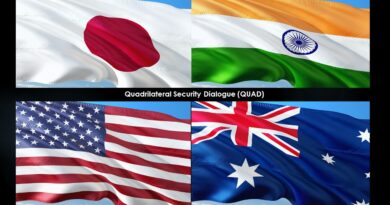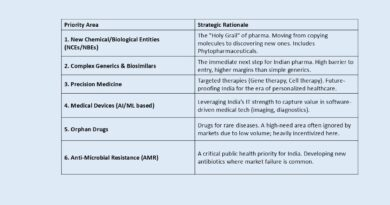USOF scheme for Aspirational Districts across five states
Context:
Recently, the Union Cabinet has approved the Universal Service Obligation Fund (USOF) scheme for provisioning of 4G-based mobile services in uncovered villages of aspirational districts across five states — Andhra Pradesh, Chhattisgarh, Jharkhand, Maharashtra, and Odisha.
Contents
Key Highlights of USOF scheme:
- The Union Cabinet, chaired by the Prime Minister has given its approval for provisioning of mobile services in Uncovered Villages of Aspirational Districts across five States of Andhra Pradesh, Chhattisgarh, Jharkhand, Maharashtra & Odisha.
- The Project envisages to provide 4G based mobile services in the 7,287 uncovered villages of 44 Aspirational Districts across five States of Andhra Pradesh, Chhattisgarh, Jharkhand, Maharashtra & Odisha at an estimated cost of implementation about Rs 6,466 crore including operational expenses for 5 years.
- The project would be funded by Universal Service Obligation Fund (USOF).
- The project will be completed within 18 months after the signing of the Agreement and likely to be completed by November 23.
- The work related to provision of 4G mobile services in identified uncovered villages will be awarded through open competitive bidding process as per extant USOF procedures.
- The present proposal for provisioning of mobile services in the remote & difficult uncovered areas of Aspirational Districts across five States of Andhra Pradesh, Chhattisgarh, Jharkhand, Maharashtra & Odisha will enhance digital connectivity useful for self-reliance, facilitate learning, dissemination of information and knowledge, skill upgradation and development, disaster management, e-Governance initiatives, establishment of enterprises & e-commerce facilities, provision of adequate support to educational institutes for knowledge sharing & availability of job opportunity and fulfilling the vision of Digital India promoting domestic manufacturing and fulfilling the objectives of Atmanirbhar Bharat etc.
What is USOF ?
- The Universal Service Obligation Fund (USOF) was formed by an Act of Parliament, was established in April 2002 under the Indian Telegraph (Amendment) Act 2003.
- It aims to provide financial support for the provision of telecom services in commercially unviable rural and remote areas of the country.
- It is an attached office of the Department of Telecom, and is headed by the administrator, who is appointed by the central government.
History of Universal Service:
- The concept of USOF is said to be originated by postal reforms of Rowland Hill (An English Reformer famous for his campaign on postal system reforms) in 1837.
- It is a key objective of the Universal Postal Union.
- The term, ‘Universal Service’ is said to be first used by the President of AT & T, Theodore Vail.
- The benefits of telecommunication technologies are to be extended to the world’s inhabitants and such an objective is enshrined in the Constitution of the International Telecommunication Union (ITU).
Universal Service Obligation Facility in India:
- In 2002 (1st April), the Universal Service Support Policy (USSP) came into effect.
- The Department of Telecommunications (DoT) had issued the guidelines on the USSP on 27th March 2002.
- In 2004, the rules for the administration of the USOF were notified. The rules were known as Indian Telegraph (Amendment) Rules, 2004.
- The fund does not lapse on its under-use annually.
- Currently, the power sector is requesting to decrease the USO levy from 5% to 3%.
USOF Vision & Objectives
Based on its genesis, the vision of the Universal Service Obligation Fund is to provide affordable access to a reliable and ubiquitous telecommunications network to all rural Indians which in return help them achieve their fullest potential.
The USOF proposes to meet its social, economic, political and constitutional objectives which are as follows:
- To extend the telecommunication network.
- To stimulate the uptake of Internet and Communication Technologies (ICT) services.
- To bring the underserved and unserved areas of the country into the telecom spectrum and narrow down the access gap.
- To use the pooled USO levy for an equitable distribution through target subsidies
Significance:
- The rural areas get the Village Public Telephones (VPTs), Rural Community Phones (RCPs), Rural Household Telephones (RDELs), and mobile infrastructure.
- With access to affordable telecom services in remote and rural areas it can help stemming urban migration and ensure generating employment opportunities in the rural areas.
- The increased awareness of ICT services in the rural areas and growing participation of the rural people will help promote facilities related to health, education etc.
- It can ensure the growth of Rural Business Process Outsourcing (BPOs-Rural) and Rural Knowledge Process Outsourcing (KPOs-Rural.)
- USOF is also perceived as the right tool to extend the benefits of the government schemes aimed at the social development of the rural population.
Related Schemes
- BharatNet Project
- National Broadband Mission
- Submarine Cable Connectivity to Andaman and Nicobar Islands
- National Optical Fibre Network
- Digital India
- National Digital Communications Policy, 2018
Source: PIB
You can find many articles on Infrastructure and Industry (part of GS III) in our website. Go through these articles share with your friends and post your views in comment section.
Discover more from Simplified UPSC
Subscribe to get the latest posts sent to your email.



